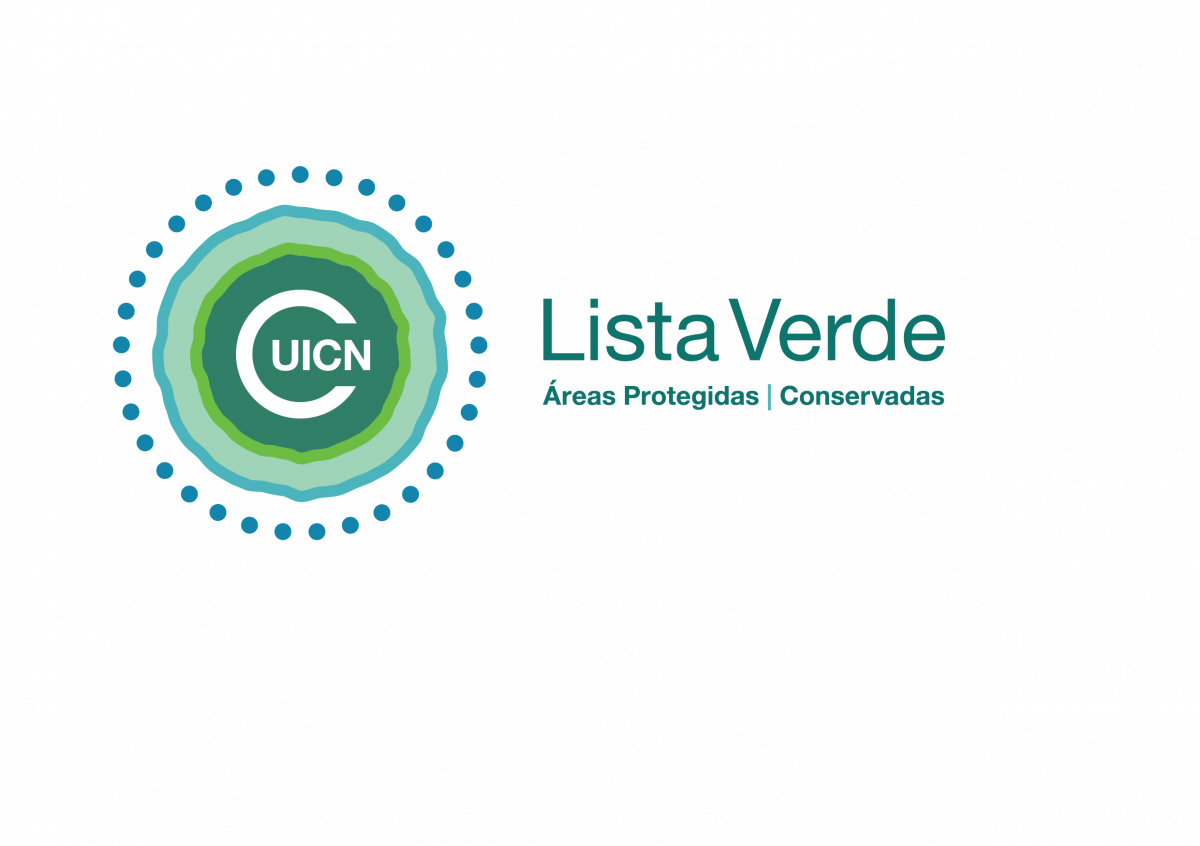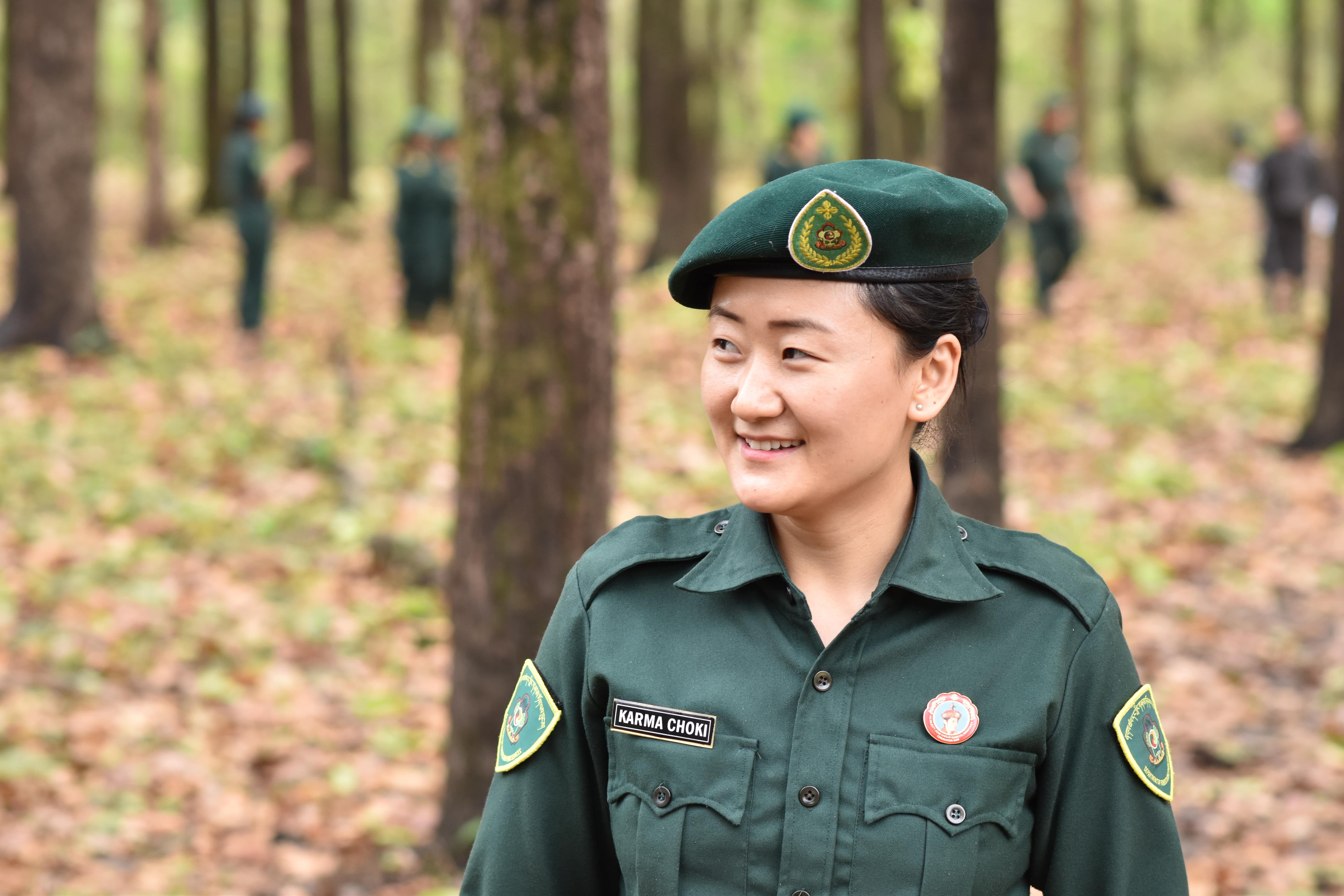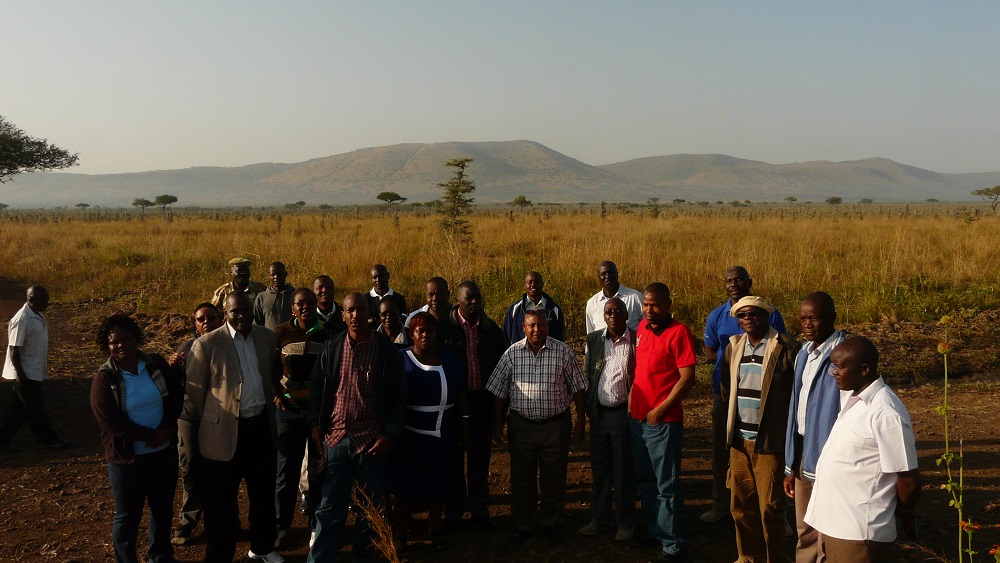Press release | 12 Fev, 2008
Indigenous Conservation Territory: A new option for governance of protected areas
Second Meeting of the CBD Working Group on Protected Areas
"Indigenous Lands of Latin America and the World make a substantial contribution to protected area objectives" recalled Mr Onel Arias Mazardule, a Kuna indigenous leader from Panama
"Indigenous Lands of Latin America and the World make a substantial contribution to protected area objectives" recalled Mr Onel Arias Mazardule, a Kuna indigenous leader from Panama

Photo: IUCN JimThorsell
Recognising and integrating the concept of “Indigenous Conservation Territories” in protected areas policy and practice is crucial to achieving the CBD protected area objectives, indigenous organizations state at CBD meeting
Once hardly heard voices despite their deep and at times painful linkages with protected areas, indigenous peoples are now powerful speakers and players on protected areas policy at all levels. But much remains to be done on the ground.
The Second Latin American Congress on Protected Areas (Bariloche, Argentina, October 2007), organized by IUCN in partnership with other international organizations, was the venue for the creation of the Indigenous Forum on Protected Areas from Latin America.
At the Second Meeting of the CBD Working Group on Protected Areas this week in Rome, the Forum came up with a forceful message, built upon the Bariloche Declaration and subsequent discussions between indigenous organizations and IUCN. “Indigenous lands of Latin America and the world make a substantial contribution to protected area objectives”, Mr. Onel Arias Mazardule, a Kuna indigenous leader from Panama, recalled the audience at a side-event on Wednesday 13th of February. “In Brazil, for example, he added, indigenous lands are more effective to protect the Amazon from deforestation and fires than official protected areas”. This indeed has been demonstrated by latest scientific analyses that monitor the region through satellites.
The CBD 2nd Ad Hoc Open-ended Working Group Meeting (Rome, Italy, 11-15 February 2008) hosted several side-events organized or co-organized by IUCN. This particular event, called “Indigenous Conservation Territories”, was organized by the Latin American Indigenous Forum on Protected Areas, with the support from IUCN Office for South America and IUCN Headquarters in Switzerland.
Its objective was to present the results of the Bariloche Congress, from the perspective of indigenous organizations, as well as the subsequent work that a group of indigenous leaders nominated at the Forum, together with IUCN, have been doing to advance the indigenous proposal on Indigenous Conservation Territories. Indigenous leaders named this partnership “Strategic Alliance between Indigenous Organizations from Latin America and IUCN on Protected Areas”.
While the indigenous proposal presented at the side-event is primarily oriented in the short term to the current process of revising the IUCN Guidelines on the International System of Protected Area Categories, it targets also the CBD Programme of Work on Protected Areas, and seeks to establish a more solid understanding on the conservation values of indigenous territories, as the basis for strengthening land and resource claims in the long term.
The Bariloche Congress recognized that Indigenous Conservation Territories are “a legitimate governance model for protected areas established in indigenous peoples’ ancestral territories”, a model whose key features are “the integration of culture and nature, the role of customary rights, the traditional institutionality and the exercise of indigenous authority in such territories.”
“Indigenous Conservation Territories equally conserve nature and our peoples’ livelihoods and cultures”, said Mazardule. “Recognition of our rights to our ancestral territories is a fundamental condition for indigenous peoples to continue caring for our land”. He illustrated this with the experience of the Kuna people, whose maximum traditional authority, the General Kuna Congress, makes decisions to govern their territory with such twin objectives of conserving nature and culture.
The indigenous proposal on Indigenous Conservation Territories examines the main characteristics of indigenous territories and their contributions to the objectives of protected areas, and proposes ways in which they can become a distinct model for governing protected areas established on indigenous lands, based on their autonomous decision-making, customary norms and institutions, and clear recognition of land, territorial and resource rights.
“Once there is security of rights, tenure and livelihoods”, said Gonzalo Oviedo, IUCN Senior Adviser on Social Policy, speaking at the meeting, “there will be also the will and responsibility to conserve their own indigenous heritage. Otherwise, in a state of insecurity and with bitter feelings for what they lost in the past due to insensitive policies, they cannot be expected to be active conservation players”.
The meeting included an animated discussion among participants about the needs and challenges of advancing the agenda of strengthening indigenous territories, and the importance and value of supporting their traditional management systems and bringing new technical tools, so that their contribution to biodiversity conservation is ensured in the long term.
Despite broad and substantial agreements, many questions remained unanswered at the conclusion of the meeting, among others about the position and interests of governments, and the real possibility of meaningful changes at policy levels and on the ground. “Can really IUCN help in an effective way address complex issues of rights, tenure, and political decision making within countries, or is it just wishful thinking?” – one participant questioned. This is largely a query that a side even alone cannot provide a definitive answer to.
For more information contact
Gonzalo Oviedo (IUCN Headquarters), mailto:gonzalo.oviedo@iucn.org
Jorge Nahuel (indigenous Mapuche leader from Argentina, coordinator of the Indigenous Forum), jnahuel@ambiente.gov.ar
Once hardly heard voices despite their deep and at times painful linkages with protected areas, indigenous peoples are now powerful speakers and players on protected areas policy at all levels. But much remains to be done on the ground.
The Second Latin American Congress on Protected Areas (Bariloche, Argentina, October 2007), organized by IUCN in partnership with other international organizations, was the venue for the creation of the Indigenous Forum on Protected Areas from Latin America.
At the Second Meeting of the CBD Working Group on Protected Areas this week in Rome, the Forum came up with a forceful message, built upon the Bariloche Declaration and subsequent discussions between indigenous organizations and IUCN. “Indigenous lands of Latin America and the world make a substantial contribution to protected area objectives”, Mr. Onel Arias Mazardule, a Kuna indigenous leader from Panama, recalled the audience at a side-event on Wednesday 13th of February. “In Brazil, for example, he added, indigenous lands are more effective to protect the Amazon from deforestation and fires than official protected areas”. This indeed has been demonstrated by latest scientific analyses that monitor the region through satellites.
The CBD 2nd Ad Hoc Open-ended Working Group Meeting (Rome, Italy, 11-15 February 2008) hosted several side-events organized or co-organized by IUCN. This particular event, called “Indigenous Conservation Territories”, was organized by the Latin American Indigenous Forum on Protected Areas, with the support from IUCN Office for South America and IUCN Headquarters in Switzerland.
Its objective was to present the results of the Bariloche Congress, from the perspective of indigenous organizations, as well as the subsequent work that a group of indigenous leaders nominated at the Forum, together with IUCN, have been doing to advance the indigenous proposal on Indigenous Conservation Territories. Indigenous leaders named this partnership “Strategic Alliance between Indigenous Organizations from Latin America and IUCN on Protected Areas”.
While the indigenous proposal presented at the side-event is primarily oriented in the short term to the current process of revising the IUCN Guidelines on the International System of Protected Area Categories, it targets also the CBD Programme of Work on Protected Areas, and seeks to establish a more solid understanding on the conservation values of indigenous territories, as the basis for strengthening land and resource claims in the long term.
The Bariloche Congress recognized that Indigenous Conservation Territories are “a legitimate governance model for protected areas established in indigenous peoples’ ancestral territories”, a model whose key features are “the integration of culture and nature, the role of customary rights, the traditional institutionality and the exercise of indigenous authority in such territories.”
“Indigenous Conservation Territories equally conserve nature and our peoples’ livelihoods and cultures”, said Mazardule. “Recognition of our rights to our ancestral territories is a fundamental condition for indigenous peoples to continue caring for our land”. He illustrated this with the experience of the Kuna people, whose maximum traditional authority, the General Kuna Congress, makes decisions to govern their territory with such twin objectives of conserving nature and culture.
The indigenous proposal on Indigenous Conservation Territories examines the main characteristics of indigenous territories and their contributions to the objectives of protected areas, and proposes ways in which they can become a distinct model for governing protected areas established on indigenous lands, based on their autonomous decision-making, customary norms and institutions, and clear recognition of land, territorial and resource rights.
“Once there is security of rights, tenure and livelihoods”, said Gonzalo Oviedo, IUCN Senior Adviser on Social Policy, speaking at the meeting, “there will be also the will and responsibility to conserve their own indigenous heritage. Otherwise, in a state of insecurity and with bitter feelings for what they lost in the past due to insensitive policies, they cannot be expected to be active conservation players”.
The meeting included an animated discussion among participants about the needs and challenges of advancing the agenda of strengthening indigenous territories, and the importance and value of supporting their traditional management systems and bringing new technical tools, so that their contribution to biodiversity conservation is ensured in the long term.
Despite broad and substantial agreements, many questions remained unanswered at the conclusion of the meeting, among others about the position and interests of governments, and the real possibility of meaningful changes at policy levels and on the ground. “Can really IUCN help in an effective way address complex issues of rights, tenure, and political decision making within countries, or is it just wishful thinking?” – one participant questioned. This is largely a query that a side even alone cannot provide a definitive answer to.
For more information contact
Gonzalo Oviedo (IUCN Headquarters), mailto:gonzalo.oviedo@iucn.org
Jorge Nahuel (indigenous Mapuche leader from Argentina, coordinator of the Indigenous Forum), jnahuel@ambiente.gov.ar



